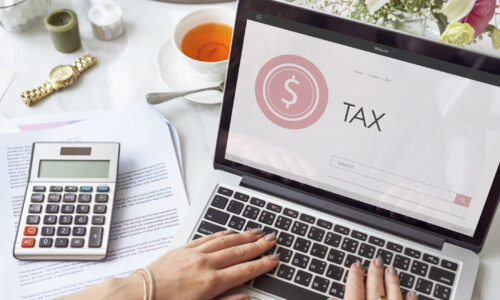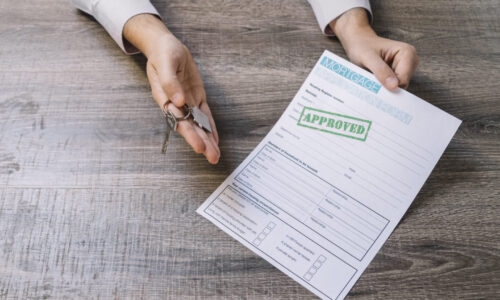Overview
With podcasting becoming increasingly more popular every day, it’s becoming harder to stand out. Therefore, if you currently run a show or are looking to start one, it’s essential to keep your audience entertained by producing highly engaging recordings.
Aside from tactics like telling lots of stories, getting listeners to interact, and inviting industry experts to your show, you’ll want to include music to spice up the intros and endings and fill in the background.
Why do I need music for a podcast?
Music in podcasts is more of a necessity than a preference. It’s just like movies; rarely do you find films without soundtracks.
Below are key reasons to include music in your podcasts:
- Emotion: Music helps take your podcast listeners through an emotional journey, no matter the topic you’re handling. For example, suppose you intend to spark off chills in your listeners. In that case, some creepy, ominous suspense background music does the magic.
- Identity: As part of branding your podcast, you can include different tunes unique to your show. Listeners will always associate the soundtrack with your show even before you start speaking.
- Transitions: Podcasts typically move from one topic to another, from content to advertising, or from one speaker to another. You can smooth out these transitions by placing a few seconds of music where there may be awkward silence.
- Focus: In a world where numerous things are constantly competing for your listeners’ attention, it’s very easy to lose them just a few minutes into the show. Scientifically speaking, music can keep listeners hooked to what you’re saying up to the end of the show.
- Fun: Even if your podcast revolves around a heavy subject matter, some happy-go-lucky music could make it more appealing.
Music copyright laws
Now that you understand the need for music in your podcast, the next step is to find the right tracks. In this field, copyright is always a force to be reckoned with. Most podcasting platforms are equipped with algorythms to detect material that violates copyright laws and take it down.
Many professional artists copyright their work, and you can’t just use it without permission. If caught, you could be removed from your podcast platform, and the artist could also sue you for copyright infringement and force you to pay fines. Thus, it’s safe to stick to non-copyrighted music for your podcast.
Types of safe music
Three categories of music are considered ‘safe’ for your podcast:
-
Creative commons music
Artists can specify that their music can be used by anyone, whether commercially or publicly. Some only require you to credit them as the producer.
-
Public domain music
Copyrights usually expire about 70 years after the original creator’s passing. By quick calculation, many songs by classical music artists who passed on in the 50s or before are now in the public domain.
-
Royalty-Free
You can get these from brokers through a one-time payoff or periodic subscription. The person or company you buy the music from is responsible for paying the royalties to the creator. They allow you to use the music provided your subscription is active.
Where to find royalty-free music
The easiest way to add music to your podcast is by sourcing royalty-free tracks from online sites. Like most other online tools, some are free while others require a little payment.
Free sites
If you haven’t started profiting from your podcast yet, you’ll likely want to minimize production costs. In this case, go for 100% free music. You can search through an array of free songs from any of the following sites:
- Pixabay
Pixabay is well-known for having copyright-free images however, they recently started offering free music tracks. The site has a filter where you can specify your preferred duration, genre, mood, movement, theme, and theme. What’s more, you don’t need to create an account. Access the site, search for a good track, and download it.
- Freebeats.io
If you are after modern, fast-paced music, head over to Freebeats.io. The famous Canadian White Hot produces all of the tracks listed on there. They only require you to follow them on social media and credit them, which is pretty simple.
- Podcastle.ai
Podcastle.ai is a web-based audio and video recording platform. But on top of that, they have a rich database of royalty-free tracks you can integrate into your recordings.
- Free Music Archive
An outstanding feature of the Free Music Archive is the chart listings of the most popular songs in the recent past. These include tracks with exceptional sound quality and catchy instrumentals. Thus, you can quickly pick among the chart listings instead of sampling through thousands of records.
- Incompetech
Incompetech is run by the renowned Kelvin MacLeod, who has composed more than 2,000 royalty-free tracks. That’s quite a rich library, and you can’t exhaust the tracks.
Paid podcast music sources
The downside of free music is that many other podcasters use it too, making it difficult to be unique. You can opt for paid sites to get premium quality tracks.
Consider these three sites:
- Shutterstock
Starting at $16.60/month, Shutterstock offers unlimited access to more than 30,000 tracks and 8,000 immersive sound effects.
- Audiojungle
As of 2022, Audio jungle has a database of 1.9 million tracks and sounds. You can purchase single tracks or pay a monthly fee of $16.50 for unlimited downloads.
- Audioblocks
With over 100,000 tracks, sound effects, and loops to choose from, Audioblocks gives you many options, and costs just $15 a month.
- Musicbed
Music bed offers custom quotes for royalty-free music for podcasters. Label-quality musicians and composers do their tracks. And with over 100 filter options, you can quickly find what you’re looking for.
- Premium Beat
Premium Beat offers five tracks every month for just $12.99 each. Their collections are incredibly helpful as they pool music into practical categories like ‘music for food podcasts,’ ‘music for Mother’s Day shows,’ etc.
Conclusion
Adding music to your podcast makes it more impactful for the listeners. But not every piece of music out there is usable. Some are copyrighted, and you will want to avoid those, so you don’t get into legal tussles with the creators.
The good thing is there are thousands of royalty-free songs and soundtracks that you can use for your podcasts. Head over to the suggested sites above and start the search. Most importantly, choose tracks that perfectly match your show’s overall tone, and you’ll improve your podcast’s effectiveness.






